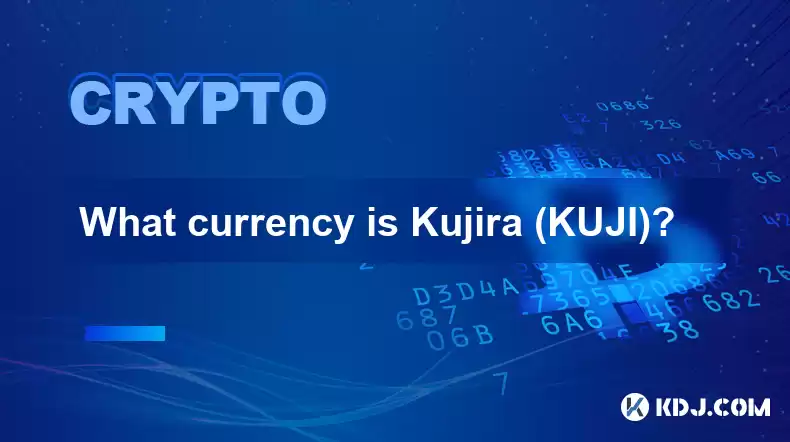-
 Bitcoin
Bitcoin $118800
-0.43% -
 Ethereum
Ethereum $4231
-0.53% -
 XRP
XRP $3.140
-1.41% -
 Tether USDt
Tether USDt $1.000
-0.02% -
 BNB
BNB $808.5
0.57% -
 Solana
Solana $175.1
-4.38% -
 USDC
USDC $0.9999
0.01% -
 Dogecoin
Dogecoin $0.2229
-4.71% -
 TRON
TRON $0.3458
2.18% -
 Cardano
Cardano $0.7744
-3.43% -
 Hyperliquid
Hyperliquid $43.19
-4.44% -
 Chainlink
Chainlink $21.19
-4.12% -
 Stellar
Stellar $0.4313
-2.84% -
 Sui
Sui $3.659
-5.59% -
 Bitcoin Cash
Bitcoin Cash $580.1
1.65% -
 Hedera
Hedera $0.2472
-4.61% -
 Ethena USDe
Ethena USDe $1.001
-0.03% -
 Avalanche
Avalanche $22.88
-3.98% -
 Litecoin
Litecoin $120.5
-2.63% -
 Toncoin
Toncoin $3.375
0.74% -
 UNUS SED LEO
UNUS SED LEO $8.984
-1.31% -
 Shiba Inu
Shiba Inu $0.00001296
-4.28% -
 Uniswap
Uniswap $11.06
1.08% -
 Polkadot
Polkadot $3.869
-4.65% -
 Cronos
Cronos $0.1664
1.09% -
 Dai
Dai $1.000
0.00% -
 Ethena
Ethena $0.7979
0.07% -
 Bitget Token
Bitget Token $4.395
-1.14% -
 Monero
Monero $268.2
-0.19% -
 Pepe
Pepe $0.00001125
-6.91%
What currency is Kujira (KUJI)?
Kujira's versatility, encompassing yield farming, staking rewards, protocol-owned liquidity, and NFT integration, has solidified its position among the top 100 cryptocurrencies.
Dec 25, 2024 at 10:10 am

Key Points
- Kujira (KUJI) is a versatile cryptocurrency that leverages DeFi protocols for maximum returns.
- Features include yield farming, staking rewards, protocol-owned liquidity, and NFT integration.
- Kuji is currently ranked among the top 100 cryptocurrencies.
Article Content
What is Kujira (KUJI)?
Kujira (KUJI) is a cutting-edge cryptocurrency that seamlessly integrates a constellation of DeFi protocols to optimize user returns. It provides a comprehensive suite of financial services, including yield farming, staking rewards, protocol-owned liquidity, and NFT integration.
Yield Farming with Kujira
Yield farming is a cornerstone of the Kujira ecosystem, allowing users to maximize their cryptocurrency holdings through liquidity provision. Kujira's yield farming platform, Orca, connects users with lending pools where they can deposit their assets and earn attractive returns. The platform supports various stablecoins, such as UST, USDC, and USDT, maximizing opportunities for passive income generation.
Staking Rewards on Kujira
KUJI holders can participate in staking by delegating their tokens to validators, contributing to the security and stability of the Kujira network. In return, delegators earn lucrative staking rewards, with variable interest rates based on the overall supply and demand for KUJI. Staking provides a steady stream of passive income for users while supporting the health of the blockchain.
Kujira's Protocol-Owned Liquidity
Kujira maintains a significant reserve of protocol-owned liquidity (POL), which it actively invests for the benefit of token holders. The POL strategy involves depositing assets in automated market makers (AMMs) to earn trading fees and generating additional revenue streams. This innovative approach helps maintain liquidity and support the long-term sustainability of the Kujira ecosystem.
NFT Integration on Kujira
Kujira incorporates non-fungible tokens (NFTs) into its platform, offering users unique opportunities for asset diversification and enhanced utility. The Kujira NFT marketplace, Krill, allows users to buy, sell, and trade digital collectibles. By integrating NFTs into its ecosystem, Kujira provides a bridge between the DeFi and NFT worlds, catering to the needs of a diverse user base.
Kujira's Notable Placements in Crypto Rankings
KUJI has consistently ranked among the top cryptocurrencies since its inception. Here are some notable placements:
- CoinMarketCap: Ranked in the top 100 cryptocurrencies by market capitalization.
- CoinGecko: Ranked in the top 300 cryptocurrencies by global trading volume.
- Defi Llama: Ranked in the top 50 decentralized finance (DeFi) protocols.
FAQs
Q: Can I stake KUJI on any platform?
A: While Kujira offers staking functionality, it's important to delegate your tokens to reliable validators. To ensure optimal rewards and security, it's recommended to research and choose validators with a proven track record.
Q: What are the risks associated with yield farming on Kujira?
A: Yield farming involves lending assets to liquidity pools, which carries the inherent risk of impermanent loss. Volatility in asset prices can lead to variable returns, and it's essential to understand the potential risks before participating in yield farming.
Q: How does Kujira's POL strategy contribute to its sustainability?
A: Kujira's POL strategy generates additional revenue streams through trading fees and strategic investments. This income helps fund ongoing development, maintain liquidity, and support the long-term growth of the Kujira ecosystem.
Disclaimer:info@kdj.com
The information provided is not trading advice. kdj.com does not assume any responsibility for any investments made based on the information provided in this article. Cryptocurrencies are highly volatile and it is highly recommended that you invest with caution after thorough research!
If you believe that the content used on this website infringes your copyright, please contact us immediately (info@kdj.com) and we will delete it promptly.
- Dogecoin's Wild Ride: Big Holders, Price Push, and What's Next for the Meme Coin
- 2025-08-12 08:30:12
- Bitcoin to $133,000? Here's What the Experts Are Saying
- 2025-08-12 08:30:12
- Dogecoin, Meme Coins, and Whale Buys: What's the Hype?
- 2025-08-12 06:50:12
- Bitcoin, Ethereum, and the Pump-and-Dump Merry-Go-Round: A New Yorker's Take
- 2025-08-12 07:10:12
- MAGACOIN Mania: Why Holders Are Staking Their Claim in This Bull Season
- 2025-08-12 06:30:13
- Heritage Distilling's Bold Bet: A $360M IP Treasury Powered by Story Protocol
- 2025-08-12 06:30:13
Related knowledge

How to purchase Aragon (ANT)?
Aug 09,2025 at 11:56pm
Understanding Aragon (ANT) and Its PurposeAragon (ANT) is a decentralized governance token that powers the Aragon Network, a platform built on the Eth...

Where to trade Band Protocol (BAND)?
Aug 10,2025 at 11:36pm
Understanding the Role of Private Keys in Cryptocurrency WalletsIn the world of cryptocurrency, a private key is one of the most critical components o...

What is the most secure way to buy Ocean Protocol (OCEAN)?
Aug 10,2025 at 01:01pm
Understanding Ocean Protocol (OCEAN) and Its EcosystemOcean Protocol (OCEAN) is a decentralized data exchange platform built on blockchain technology,...

Where can I buy UMA (UMA)?
Aug 07,2025 at 06:42pm
Understanding UMA and Its Role in Decentralized FinanceUMA (Universal Market Access) is an Ethereum-based decentralized finance (DeFi) protocol design...

How to buy Storj (STORJ) tokens?
Aug 09,2025 at 07:28am
Understanding Storj (STORJ) and Its Role in Decentralized StorageStorj is a decentralized cloud storage platform that leverages blockchain technology ...

Where to find the best price for Audius (AUDIO)?
Aug 11,2025 at 04:01pm
Understanding the Basics of Ethereum StakingEthereum staking refers to the process of locking up ETH tokens to support the security and operations of ...

How to purchase Aragon (ANT)?
Aug 09,2025 at 11:56pm
Understanding Aragon (ANT) and Its PurposeAragon (ANT) is a decentralized governance token that powers the Aragon Network, a platform built on the Eth...

Where to trade Band Protocol (BAND)?
Aug 10,2025 at 11:36pm
Understanding the Role of Private Keys in Cryptocurrency WalletsIn the world of cryptocurrency, a private key is one of the most critical components o...

What is the most secure way to buy Ocean Protocol (OCEAN)?
Aug 10,2025 at 01:01pm
Understanding Ocean Protocol (OCEAN) and Its EcosystemOcean Protocol (OCEAN) is a decentralized data exchange platform built on blockchain technology,...

Where can I buy UMA (UMA)?
Aug 07,2025 at 06:42pm
Understanding UMA and Its Role in Decentralized FinanceUMA (Universal Market Access) is an Ethereum-based decentralized finance (DeFi) protocol design...

How to buy Storj (STORJ) tokens?
Aug 09,2025 at 07:28am
Understanding Storj (STORJ) and Its Role in Decentralized StorageStorj is a decentralized cloud storage platform that leverages blockchain technology ...

Where to find the best price for Audius (AUDIO)?
Aug 11,2025 at 04:01pm
Understanding the Basics of Ethereum StakingEthereum staking refers to the process of locking up ETH tokens to support the security and operations of ...
See all articles

























































































